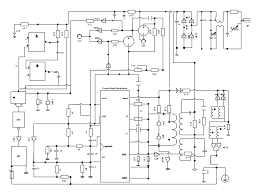What you’ll learn
· Understand how electricity works, how it is generated, transmitted to, and distributed throughout your home.
· Wire a receptacle (regular, switched, GFCI), a switch (3 and 4-way), a light fixture, and more!
· Have the knowledge and skills to safely and competently complete most home electrical projects and repairs.
Requirements
· No materials or special software required.
· A desire to learn, and a healthy respect for, and an interest in electricity.
· Basic math skills and some mechanical inclination would be an asset.
Description
After completing this course, students will have a solid knowledge of the fundamentals of electricity and how it functions within the home, including how electricity is generated, transmitted to, transformed, and how it enters the home through the power meter, the main breaker, and the branch circuit breaker panel.
From there we cover in detail all types of receptacles, switches, and light fixtures, and how to correctly wire them. Safe practices are covered in detail, including the use of circuit testers. The course includes an in-depth look at rough-in wiring, and explains the role, use and importance of ground fault circuit and arc fault circuit protection.
At the end of the course the student will know how to take on most small electrical projects and repairs around the home, both safely and competently.
Who this course is for:
· Homeowners with an interest in learning how to complete small electrical projects and repairs throughout the home.
· Anyone that may be looking towards a career as an electrician would also benefit from this knowledge base.
· Anyone with a general interest in, or curiosity of how electricity works, and how it is put in use in the home.
Course Structure
The EWIW100 (Electrical wiring and industrial wiring) course contains nine modules. After completing the first eight modules, the students have to do a six hours project towards the requirements for the award of Certificate in EWIW.
| EWIW | Module Name | Duration (Hours) |
| EWIW 101 | Fundamentals of Wiring and tools | 3 |
| EWIW 102 | Code of practice and relevant span | 2 |
| EWIW 103 | Wiring of electric motors, control panel etc. | 2 |
| EWIW 104 | Types, specifications, advantage of different types of circuit breakers. | 3 |
| EWIW 105 | Working principle and construction of domestic and agricultural appliances- their maintenance | 2 |
| EWIW 106 | Layout of control cabinet and control panel | 2 |
| EWIW 107 | Study and understand layout drawing of control cabinet, panel , power & control circuits. | 2 |
| EWIW 108 | Isolator, push button switches, indicating lamps , MCB, fuse, contactor, Relays, Overload relay, timers, rectifiers, limit switches , control transformers. Wiring accessories. | 4 |
| EWIW 109 | Project | 6 |
| Total | 26 |

